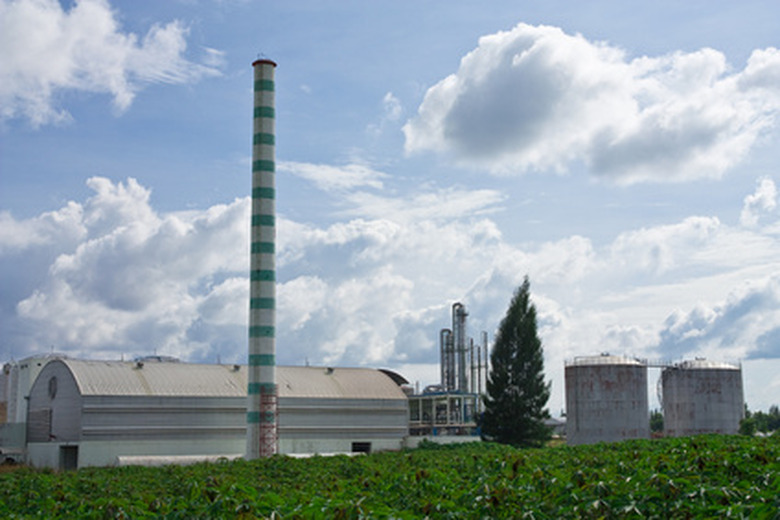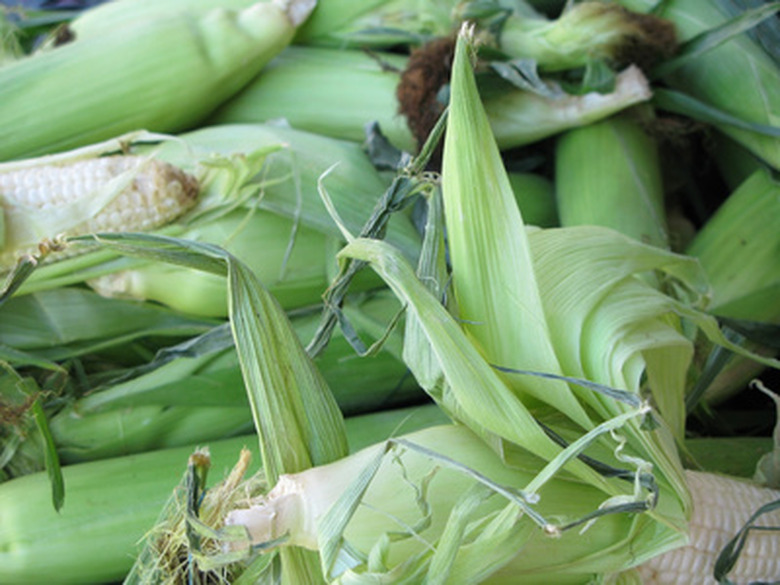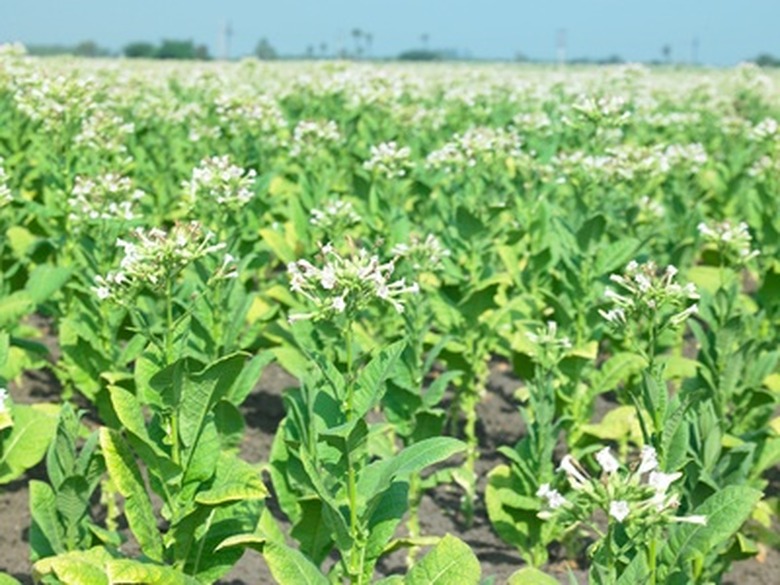Ingredients For Biofuel
Scientists and innovators are currently developing biofuels to replace finite fossil fuels like petroleum and natural gas. The advantages to biofuels include cleaner emissions, cheaper prices, and local production. Biofuels are an alternative form of fuel made from organic food products and waste materials. The ingredients for biofuels include (but are not limited to) ethanol (from corn, tobacco and orange peels), methane and vegetable oil (see References 1 and 2).
Corn and Camelina
Corn and Camelina
A major source of ethanol, corn is often touted as a viable alternative to fossil fuels, but using a viable food crop as fuel has some obvious disadvantages. In Mexico, for example, ethanol production is limited to surplus corn as it is an important food staple for the working class. As of 2009, food crop alternatives such as the weed camelina were being developed for ethanol production and biofuel use (see References 3 and 4).
The Tobacco Enzyme
The Tobacco Enzyme
This enzyme, developed by the University of Florida and Henry Daniell, makes it possible to convert almost any plant matter (orange peels, algae, straw) into ethanol and biofuel. This enzyme is developed by cloning the genes of fungi and bacteria. A major advantage of this method is that the need to transport fuel over long distances is eliminated; for example, Henry Daniell's method includes orange peels because they are plentiful in the state of Florida (see Reference 2).
Methane
Methane
Methane is a hydrocarbon and a component of natural gas. A major ingredient in most biofuel mixes, methane can be extracted from a variety of sources, including animal waste, refuse, and coal mining. Since methane is mostly derived from waste products, using methane as a biofuel also has the additional benefit of helping to clean up the environment (see Reference 5).
Vegetable Oil
Vegetable Oil
If you have a diesel engine, using vegetable oil as biofuel is a possibility. The recipe for biodiesel is deceptively simple, starting with conventional, store-bought vegetable oil as a base. However, the vegetable oil has to be thinned using a fairly hazardous chemical process that includes using an alcohol to strip the glycerin from the oil. An alkaline is also used to break down the acidic vegetable oil molecules and create viable biofuel for a diesel engine (see Reference 1).
Cite This Article
MLA
Ambrose, Kristy. "Ingredients For Biofuel" sciencing.com, https://www.sciencing.com/ingredients-biofuel-7648229/. 24 April 2017.
APA
Ambrose, Kristy. (2017, April 24). Ingredients For Biofuel. sciencing.com. Retrieved from https://www.sciencing.com/ingredients-biofuel-7648229/
Chicago
Ambrose, Kristy. Ingredients For Biofuel last modified March 24, 2022. https://www.sciencing.com/ingredients-biofuel-7648229/




